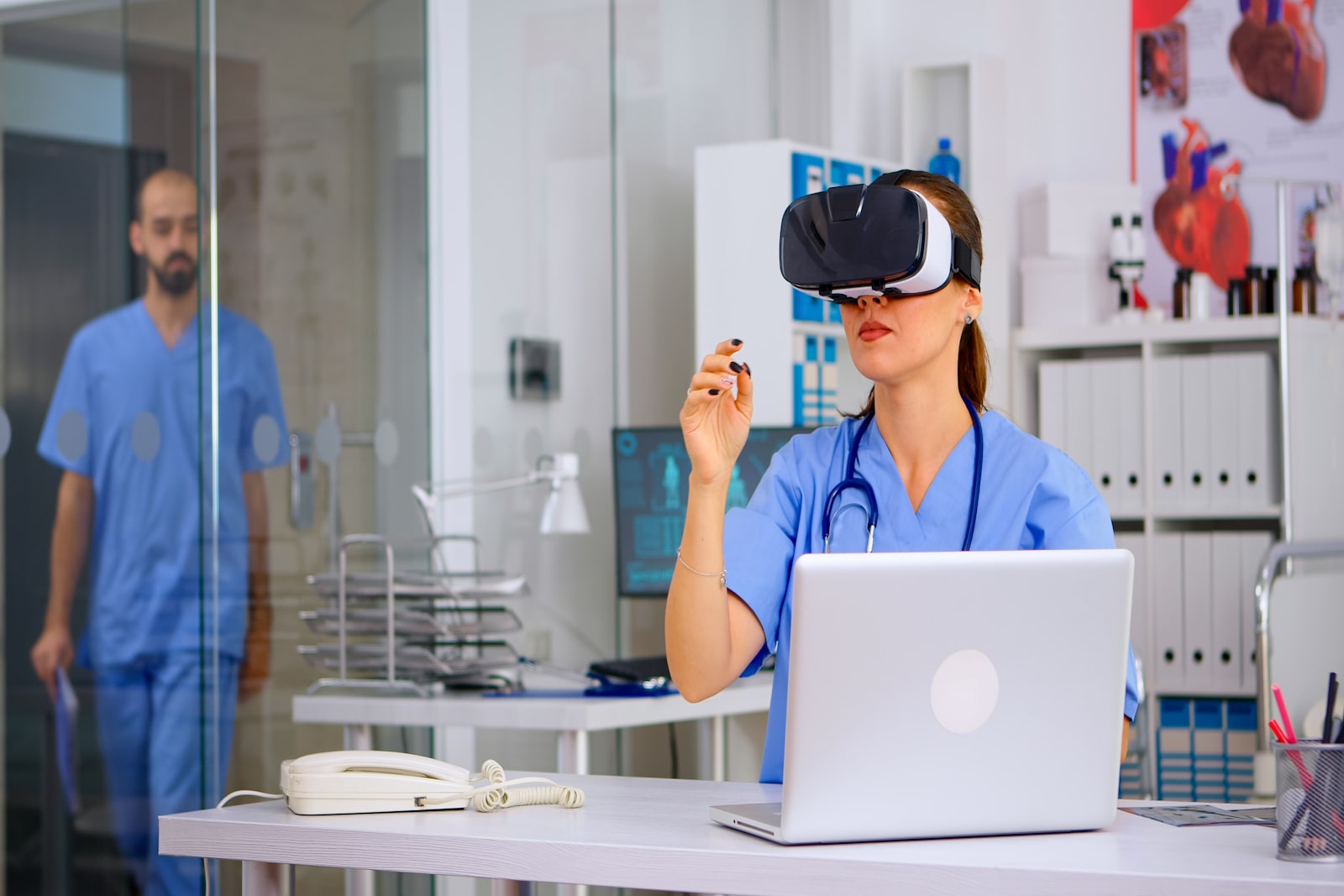
Enhancing eLearning LMS with Virtual Reality
The world of education and professional training has evolved rapidly, and one of the most exciting innovations is the integration of Virtual Reality (VR) into eLearning platforms. Virtual reality offers immersive learning experiences that can revolutionise how we engage with educational content, particularly in specialised fields. From engineering to medicine and military training, VR is enhancing eLearning LMS (Learning Management Systems) to create more engaging, realistic, and effective learning environments. In this blog, we explore how VR is transforming eLearning LMS across several sectors and the benefits of this integration.
VR for Engineering Training: Scenario-Based Learning
Traditional engineering training often requires access to physical resources, such as equipment and machinery, which may be costly, difficult to maintain, or unavailable. Virtual reality offers a solution by enabling scenario-based learning without the need for physical resources. Engineering students can now engage with 3D simulations of complex systems and practice troubleshooting or assembly procedures in a risk-free virtual environment.
Through VR, learners can interact with virtual machinery, systems, or even entire buildings, replicating real-world scenarios they may face in their careers. This hands-on practice not only improves understanding but also increases retention, as students can repeat simulations without any additional cost.
VR in Medicine: Surgical Simulations and Anatomy Exploration
In the medical field, VR is having a profound impact, particularly in surgical training and anatomy exploration. Medical students can now experience realistic simulations of surgeries and medical procedures, allowing them to practice techniques before stepping into a real operating room. VR-based training systems provide lifelike, interactive environments where learners can explore human anatomy in great detail, making it easier to understand complex structures and processes.
Surgical simulations are invaluable in ensuring medical professionals are well-prepared for high-stakes situations, such as medical emergencies. By practising in a controlled virtual environment, learners can refine their skills, gain confidence, and enhance their ability to make quick, accurate decisions when faced with real-life emergencies.
Benefits of VR Integration in eLearning LMS
Integrating VR into eLearning LMS offers several advantages that improve the overall learning experience. Let’s explore the key benefits:
Enhanced Engagement
One of the most significant advantages of VR in eLearning LMS is the enhanced engagement it offers learners. Traditional eLearning methods can be passive, with students primarily reading materials or watching videos. In contrast, VR offers an immersive experience that requires active participation. Learners can interact with content, explore environments, and solve problems in real-time, which significantly boosts engagement and motivation.
Engagement is directly linked to improved retention, as learners are more likely to remember information when they actively participate in the learning process. VR also provides the opportunity for continuous learning, allowing students to revisit scenarios and practice repeatedly until they master the skill or concept.
Risk-Free Practice
VR also allows for risk-free practice, which is particularly beneficial in fields such as medicine and engineering. Learners can practise high-risk procedures, such as surgeries, in a safe and controlled virtual environment. In these scenarios, there are no real-world consequences for mistakes, enabling learners to experiment, learn from errors, and improve their skills without fear.
For instance, a medical student can practise a complex surgery multiple times, correcting their technique with each iteration, or an engineer can troubleshoot a system failure without the risk of damaging expensive equipment.
Real-Time Feedback and Assessment
One of the most exciting features of VR in eLearning LMS is the ability to provide real-time feedback and assessment. VR systems can monitor learners’ actions and performance during simulations, offering immediate feedback to help them improve. For example, in surgical training, VR can analyse the precision of a student’s movements and provide guidance on where they can improve.
This immediate feedback loop accelerates the learning process, helping learners refine their skills and increase their confidence in their abilities. Additionally, VR-based training often includes assessments that evaluate learners’ performance and progress, ensuring they meet the necessary competencies before advancing.
Cost-Effectiveness
Although the initial setup costs for VR-based training may be higher than traditional methods, over time, VR can be a more cost-effective solution. By eliminating the need for physical equipment, travel, and real-world training resources, VR offers long-term savings. For example, medical institutions no longer need to invest in expensive cadavers or simulation labs. Instead, they can rely on virtual simulations that can be easily accessed by students at any time.
Personalised Learning Paths
Another significant advantage of VR in eLearning LMS is the ability to create personalised learning paths. Traditional training often follows a one-size-fits-all approach, but with VR, learners can progress at their own pace. The system can adjust scenarios based on their level of competence, ensuring that each learner receives a tailored experience that suits their unique needs.
This adaptability ensures that all learners, regardless of their skill level, can benefit from VR training. Whether a student needs extra practice on a particular task or is ready for more complex simulations, VR can provide the necessary challenges to push them forward.
Conclusion
Integrating VR into eLearning LMS is an exciting development that is transforming the way we learn and train across various fields. From engineering to medical training, VR offers a range of benefits that enhance engagement, provide risk-free practice, and enable personalised learning experiences. As VR technology continues to evolve, its potential for improving education and training is limitless.
At Sound Idea Digital, we understand the value of cutting-edge technologies like VR in eLearning. If you’re looking to enhance your organisation’s training programme with VR, contact us today. We’re here to help you create immersive, engaging, and effective learning experiences.



